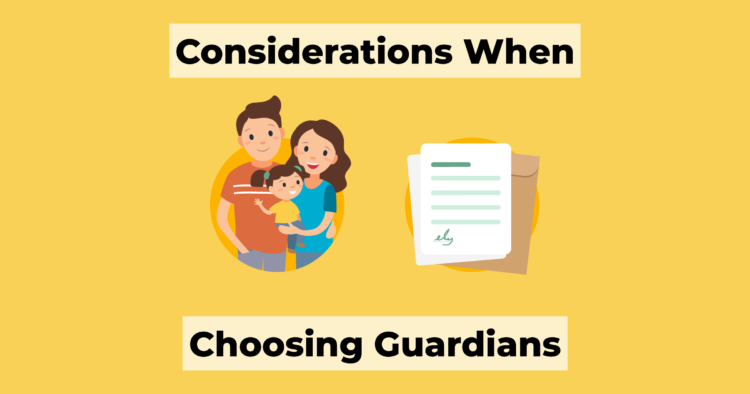
Estate planning is a crucial process, often accompanied by complex decisions and considerations. One of the most significant choices you'll make is selecting guardians for your minor children. While it might seem like a straightforward decision, there are various factors to contemplate to ensure the well-being and future of your loved ones.
Age and Physical Ability
Many individuals instinctively consider their parents as ideal guardians. However, it's essential to project into the future. In 5, 10, or 15 years, will your parents still have the energy to care for your children? Do your children have special needs that might require more attention? Evaluating the long-term physical ability of potential guardians is a prudent step in this process.
Location
Choosing guardians in a different city, province, or country introduces additional considerations. Can you envision your children growing up in a different location? Would you want the guardians to relocate to your home? These are pivotal questions that can be addressed in your will, providing clarity and guidance for the future upbringing of your children.
Values and Beliefs
Another crucial aspect is aligning the values and beliefs of the chosen guardians with your own. Are there specific religious or cultural practices you wish to be a part of your children's lives? While you can express these desires in your will, selecting guardians who share these values makes the implementation much smoother.
Marital Status
Consider the marital status of potential guardians. If you're leaning towards a couple, think about the potential complications that might arise if they were to separate. To avoid the need for frequent updates to your will, it might be wise to appoint an individual guardian rather than a couple.
Have a Backup Plan
Life is unpredictable, and circumstances can change. Having a backup plan ensures that if your primary choice is unable to fulfill their role, the courts can still honor your wishes. Naming a secondary guardian provides an added layer of security for the future of your children.
Communication is Key
Once you've made these important decisions, it's crucial to communicate them to the selected guardian(s). Open and honest discussions about your expectations and wishes can help everyone involved understand their responsibilities.
Documentation and Completion
Finally, solidify your decisions by documenting them in your will. This legal document is the cornerstone of your estate plan, ensuring that your wishes are not only known but legally binding. Completing your will is a responsible and proactive step towards securing the well-being of your children.
Choosing guardians involves thoughtful consideration of various factors such as age, physical ability, location, values, and marital status. Having a backup plan and communicating your decisions are equally essential. By addressing these considerations and documenting your choices in your will, you can navigate the path of estate planning with confidence, ensuring a secure future for your loved ones.
Disclaimer
All examples are for illustrative purposes only and are not intended to provide individual financial, investment, tax, legal or accounting advice. This material is for general information and is subject to change without notice. Every effort has been made to compile this material from a reliable source. However, we cannot guarantee that information will be accurate, complete and current at all times. Before acting on any of the above, please make sure to see a financial professional for advice based on your personal circumstances.
